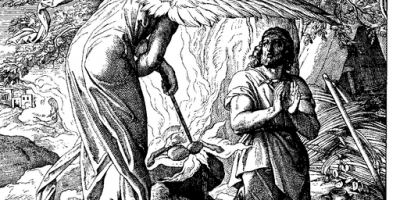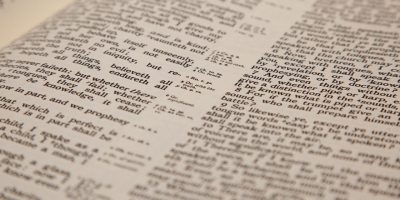The Book
of Acts
The Book of Acts
The following are summaries and outlines for
the Gospel of Acts.

Book of Acts Summary
Acts is significant for chronicling the spread of the gospel, not only geographically but also culturally. It records the transition from taking the gospel to an exclusively Jewish audience—with Peter preaching to a small group in the Upper Room—to the gospel going out among the Gentiles, primarily under the ministry of the apostle Paul.
Source: [Footnote# 1 at bottom]

Title
“The Acts of the Apostles” is the book’s full name. Its authorship is attributed to the apostle Luke, who writes that he means to chronicles the events of the leaders of the early church, starting with Jesus’ last direct teachings and His ascension into heaven. … It’s the ACTS, or ACTIONS, they did to do so.
Source: [Footnote# 2 at bottom]

Author and Date of Writing
Luke, a Gentile physician and missionary companion of Paul. Luke with Paul during Paul’s second Roman imprisonment and the last days before his martyrdom. Luke also wrote the Gospel of Luke.
The Book was probably written about A.D. 63, soon after the last event recorded in the book
Acts Outline
I. The church beginning in Jerusalem: its birth among the Jews, early growth, and local opposition 1:1—7:60
- The birth of the church, 1:1—2:47
- Preliminary matters: relating Acts to the Gospels, Acts 1:1–26
- Pentecost: the coming of the Holy Spirit, Acts 2:1–47
- A miracle with significant consequences, 3:1—4:31
- The healing of a lame man, Acts 3:1–11
- The preaching of Peter, Acts 3:12–26
- The threatenings of the Sadducees, Acts 4:1–31
- Opposition from within and without, 4:32—5:42
- The incident concerning Ananias and Sapphira, Acts 4:32—5:11
- The persecution by the Sadducees renewed, Acts 5:12–42
- The Seven chosen and ministering in Jerusalem, 6:1—7:60
- The Seven chosen to serve in the Jerusalem church, Acts 6:1–7
- Stephen’s ministry in Jerusalem, Acts 6:8—7:60
II. The church spreading throughout Judea, Samaria, and Syria: its beginnings among the Gentiles 8:1—12:25
- The persecution that scattered the entire church, 8:1–4
- The ministry of Philip, 8:5–40
- To the Samaritans, Acts 8:5–25
- To an Ethiopian proselyte, Acts 8:26–39
- At Caesarea, Acts 8:40
- The conversion and early ministry of Saul, the Apostle to the Gentiles, Acts 9:1–31
- His conversion and commission, Acts 9:1–19
- His early ministries, Acts 9:20–30
- His conversion brings peace and growth to the churches of Palestine, Acts 9:31
- The ministry of Peter, 9:32—11:18
- His itinerant ministry throughout Judea and Samaria, Acts 9:32–43
- His ministry to Gentiles in Caesarea, Acts 10:1—11:18
- The mission at Antioch of Syria, 11:19–30
- The early work among the Jews, Acts 11:19
- The later work among the Gentiles, Acts 11:20–22
- The ministry at Antioch, Acts 11:23–30
- The prosperity of the church despite persecution by the Palestinian king, 12:1–25
- Herod’s attempts to hinder the church, Acts 12:1–19
- God’s victory through the slaying of Herod, Acts 12:20–25
III. The church progressing westward to Rome: its shift from a Jewish to a Gentile entity 13:1—28:31
- First missionary journey, 13:1—14:28>
- At Antioch of Syria: the commissioning, Acts 13:1–4
- On Cyprus: Sergius Paulus believes, Acts 13:5–13
- At Antioch of Pisidia: Paul’s message received by the Gentiles, rejected by Jews, Acts 13:14–52
- In the Galatian cities: Iconium, Lystra, Derbe, Acts 14:1–20
- On the return: establishing new churches and reporting home, Acts 14:21–28
- Jerusalem council, 15:1–35
- The problem: conflict over the place of the Law in salvation and church life, Acts 15:1–3
- The discussion, Acts 15:4–18
- The decision: stated and sent, Acts 15:19–35
- Second missionary journey, 15:36—18:22
- The opening events, Acts 15:36—16:10
- The work at Philippi, Acts 16:11–40
- The work at Thessalonica, Berea, and Athens, Acts 17:1–34
- The work at Corinth, Acts 18:1–17
- The return to Antioch, Acts 18:18–22
- Third missionary journey, 18:23—21:16
- Preliminary work at Ephesus involving Apollos, Acts 18:23–28
- Paul’s work at Ephesus, Acts 19:1–41
- Paul’s return to the established churches, Acts 20:1–16
- Phase one of the Roman imprisonment: Paul’s witness in Jerusalem, 21:17—23:35
- Paul with the Jerusalem church, Acts 21:17–26
- Paul seized and falsely accused, Acts 21:27–36
- Paul’s defense before the people, Acts 21:37—22:29
- Paul’s defense before the Sanhedrin, Acts 22:30—23:10
- Paul delivered from a conspiracy, Acts 23:11–35
- Phase two of the Roman imprisonment: Paul’s witness in Caesarea, 24:1—26:32
- Paul before Felix, Acts 24:1–27
- Paul before Festus, Acts 25:1–12
- Paul’s case presented to King Agrippa, Acts 25:13–27
- Paul’s defence before King Agrippa, Acts 26:1–32
- Phase three of the Roman imprisonment: Paul’s witness in Rome, 27:1—28:31
- The sea voyage and shipwreck, Acts 27:1–44
- The winter on Melita, Acts 28:1–10
- The final trip to Rome, Acts 28:11–15
- The witness at Rome, Acts 28:16–31